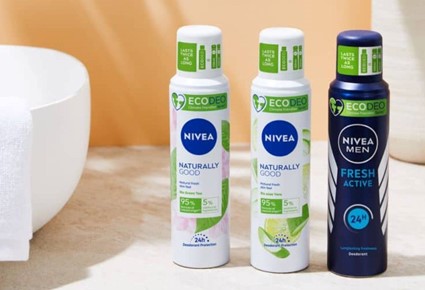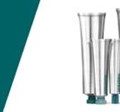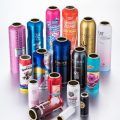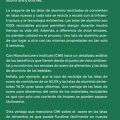Manufacturer Beiersdorf has announced the launch of a new aerosol valve system for its new Nivea Ecodeo product line. This is Salvalco’s innovative Eco-Valve technology.
Among its advantages is the use of more environmentally friendly inert gases, such as nitrogen, as a propellant in aerosols. The new system not only generates a higher output per can, which significantly reduces greenhouse gas emissions, but also significantly improves spray quality.
Together with Salford Valve Company (Salvalco) and Nussbaum Matzingen, the skin care company now offers innovative and more sustainable solutions. In this regard, François Pascal, Vice President Corporate Sustainability at Beiersdorf says he is delighted to work with “such incredible partners to accelerate our company’s transformation towards a climate-positive future. With these kinds of partnerships, we can take serious steps on our sustainability journey”.
“We share the vision of a climate-positive future with our partners at Salvalco and are excited to now offer more climate-friendly aerosol products to our consumers,” says Michael Becker, Head of Global Packaging R&D at Beiersdorf.
Another of its bets is related to recycled aluminum. Beiersdorf and Nussbaum Matzingen joined forces in May 2021, with the idea of producing cans made entirely from recycled aluminium. The Swiss packaging specialist has been working intensively with Beiersdorf and succeeded in becoming the key supplier of fully recyclable aluminium cans. It is already available in Germany and will be rolled out to other European markets in 2022.
Markus Tomasini, CTO of the Nussbaum Group, details that “we have achieved 100 percent replacement of primary aluminium by using beverage can waste as the starting material for the aerosol cans. Innovation in tools and processes was the key to being able to process the high alloy content in the post-consumer recycled material”.
Compared to the old deodorant cans, the new ones offer a 28% decrease in CO 2 emissions. For aluminium shaving gel cans, CO2 emissions could be reduced by 35%. In addition, the use of recycled aluminium requires 95% less energy in the production process.







